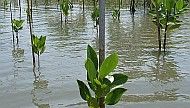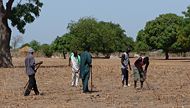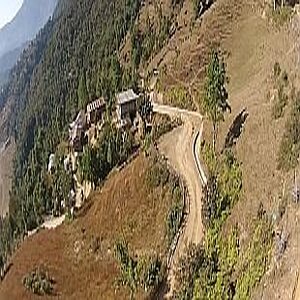Ecosystems Protecting Infrastructure and Communities (EPIC)
Using an innovative approach involving five case studies, the project consortium of international non-governmental organisations and universities worked to identify and document the many benefits of preserving ecosystems. The objective was to raise awareness of the role and function of ecosystems as protective barriers and as contributors to reducing climate-related risks. Intact ecosystems not only counter the consequences of climate change such as rising sea levels, they also contribute to carbon storage and safeguard livelihoods. On the basis of their findings, the project partners provided knowledge and expertise on ecosystem-based practices to reduce risk in selected countries. These approaches were also disseminated among relevant actors through networks, forums and workshops.
- Countries
- Burkina Faso, Chile, China, Nepal, Senegal, Thailand
- IKI funding
- 3,553,393.82 €
- Duration
- 09/2012 till 08/2017
- Status
- completed
- Implementing organisation
- International Union for Conservation of Nature and Natural Resources (IUCN) - Switzerland
- Political Partner
-
- Diverse climate change relevant institutions in the respective partner countries/Diverse klimarelevante Institutionen in den entsprechenden Partnerländern
- Implementing Partner
-
- International Union for Conservation of Nature and Natural Resources (IUCN) - West and Central Africa Regional Office
- International Union for Conservation of Nature and Natural Resources (IUCN) - Ecuador
- International Union for Conservation of Nature and Natural Resources (IUCN) - Nepal
- Mangrove Action Project (MAP)
- National Institute of Agronomic Research (INRA) - France
- University of Lausanne (UNIL) (Université de Lausanne)
- WSL Institute for Snow and Avalanche Research (SLF)
State of implementation/results
- Project completed
- All pilot projects have been defined and implemented in the six target countries.
- Vulnerability analyses were completed.
- The project's common research and learning framework has been developed and is being used by all partners for implementing the pilot projects and documenting the results.
- Based on the experiences gained in the project, IUCN (together with Japan) was able to influence a COP decision within the framework of the 12th Conference of the Parties (COP) to the Convention on Biological Diversity (CBD) to the extent that experiences gained with ecosystem-based approaches and the associated potentials for disaster preparedness will now be collected and evaluated.
- Six multi-stakeholder dialogue (MSD) platforms, comprised of government bodies, NGOs and civil society were established in the target countries and used to inform and influence policy.
Latest Update:
12/2024
Further links
Project relations
Legend:
The link has been copied to the clipboard













